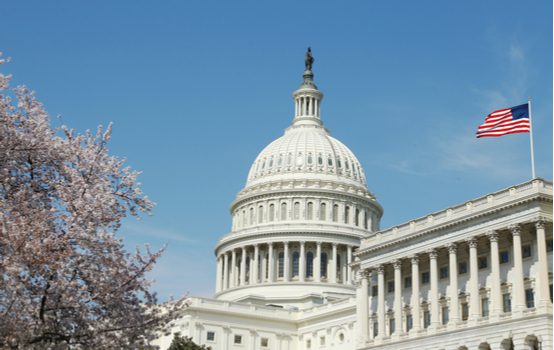Submit the Paris Treaty to the Senate

The so-called Paris “Treaty” has all sorts of grounds for complicated lawsuits to restrict America’s new found energy independence and growing massive natural-gas production. We need to get out from under it. Yet a weakened President Trump is hesitating while the global-warming lobby tries desperately to confound the issues.
There have recently been stories raising concerns about how South Pole ice might one day melt and raise sea levels. But this because ice has been increasing at the South Pole. (See my earlier article for details on South Pole ice and new cold weather records in Asia.)
It is seldom mentioned that the “Treaty” received nearly unanimous support among developing nations because they were promised billions per year to pay for cutbacks on their energy production. As Bloomberg verified, “many poor nations signed up to the treaty largely because of a promise of $100 billion a year of ‘climate aid’ from rich nations, starting from 2020.” Of course, most of this money is supposed to come from Washington and Obama committed a billion for it before leaving office.
Similarly, European support can be understood in terms of the feared political backlash from voters (Germans are paying over 30 euro-cents per kilowatt hour for electricity, nearly three times what Americans pay) if questions are raised about the hundreds of billions their governments have spent subsidizing solar and wind power.
There is also a vital constitutional issue of senatorial “advice and consent.” There is no question that the Paris Agreement was a treaty. Obama knew he would not get the votes in the Senate to pass it. The precedent of so committing America to such an agreement without a Senate vote should not be allowed to stand. A report by the Competitive Enterprise Institute lays out the reasons:
The Paris Climate Agreement is a treaty by virtue of its costs and risks, ambition compared to predecessor climate treaties, dependence on subsequent legislation by Congress, intent to affect state laws, U.S. historic practice with regard to multilateral environmental agreements, and other common-sense criteria.
CEI’s analysis further explains:
A majority of states have sued to overturn the Obama Environmental Protection Agency’s end-run around Congress, the Clean Power Plan, which is also the centerpiece of the U.S. NDC (nationally determined contributions) under the Paris Agreement. Yet, the CPP is only a start. All of Obama’s adopted and proposed climate policies would only achieve about 51 percent of just the first NDC, and the Paris Agreement requires parties to promise more “ambitious” NDCs every five years.
The Republican Senate will not vote to approve the treaty. That would end any case for its legal validity. Fear that a vote might be filibustered so that some future leftist administration could eventually resubmit it for ratification is bogus. In fact, it would be a constant thorn in the side of the Left for future elections. Remember another real motive for them is for Washington to have growing bureaucratic control over the states and citizenry. All sorts of new government powers could be claimed as a way of controlling climate change. Fears of this would give conservatives a constant election issue by keeping the issue alive.
The current risks of doing nothing are explained in another article:
Environmental pressure groups and several state attorneys general have begun to prepare lawsuits in federal court to block withdrawal of the “Clean Power” Plan and other greenhouse gas rules. One argument that they have already put forward is that these rules cannot be withdrawn because they are part of our international commitment under the Paris Climate Treaty. Failing to withdraw from Paris thus exposes key parts of your deregulatory energy agenda to unnecessary legal risk. The AGs revealed in a recruiting letter that they also plan other lawsuits “ensuring that the promises made in Paris become reality.
Bjorn Lomborg explains the flaws of the treaty in USA Today:
In truth, Trump’s action just exposes what we have known for a while: The Paris Agreement is not the way to solve global warming. Even if every nation fulfilled everything promised — including Obama’s undertakings — it would get us nowhere near achieving the treaty’s much-hyped, unrealistic promise to keep temperature rises under 1.5 degrees Celsius.
Further obfuscating the issues is the constant barrage about the ease of moving to so called “clean energy.” Actually “wind and solar are supplying less than 1% of global energy demand….wind provided 0.46% of global energy consumption in 2014, and solar and tide combined provided 0.35%.” Higher reported numbers for renewables include wood burning, dung and such.
With all the complications, the best way to ice the treaty is to put it before the Senate for ratification. Failure there will once and for all end any legal grounds for implementing it.
Jon Basil Utley is publisher of The American Conservative.